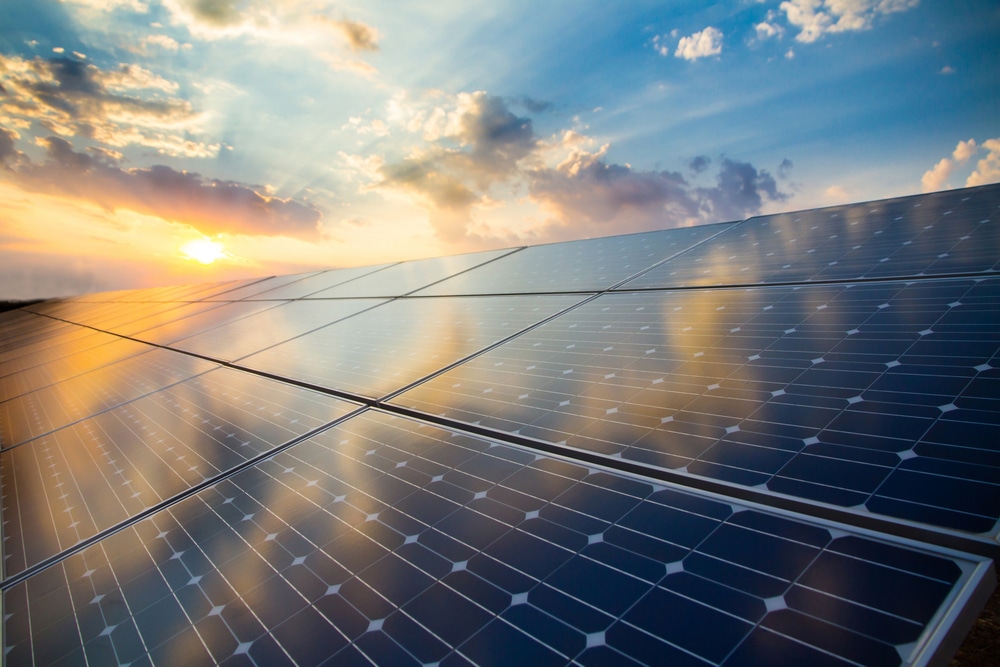Autumn is here and Winter is on its way. As the days get shorter and the weather starts to cool down, we’re starting to see fewer sunny days. This can be concerning for people who are thinking about installing solar panels for your home in Australia, as they may wonder if their solar panels will still produce energy on cloudy and overcast days. Do solar panels need direct sunlight to work? Will they produce enough energy for your needs?

In this article, we’ll answer these very common questions and provide a few tips to help you make the most out of your solar investment – cloud or shine.
Do solar panels still produce energy on overcast days?
There’s no question that solar panels rely on sunlight to generate electricity. The photovoltaic cells inside the panel absorb the photons from the sun and use them to create an electrical current. This process is called the photovoltaic effect. But what about when it’s overcast? Can solar panels still produce electricity on cloudy days?

The answer is yes. Solar panels will still produce electricity on overcast days, but the amount of electricity produced will be lower than on bright, sunny days. This is because the clouds block some of the sun’s photons from reaching the panel. Just how much the system’s output is reduced is dependant on the amount and duration of cloud cover.
The angle of the sun, coupled with the strength of the sun’s radiation, means that some solar systems can generate twice the electricity in summer, than in the shorter days of winter (usually well in excess of household requirements).
How much electricity do solar panels produce on overcast days?
As we mentioned, the amount of electricity produced by solar panels on overcast days will be lower than on bright, sunny days. But how much lower?
Fortunately, most modern solar panels are designed to work well in low-light conditions and will still generate adequate electricity on overcast days. As a rule of thumb, a standard solar panel will produce around 25% to 45% of the energy it would normally produce under ideal conditions, while higher-efficiency panels can yield even higher outputs.
The lucky country
We’ve been called the lucky country – a land of economic opportunity and bountiful natural resources. And when it comes to solar power, we really are lucky. Australia is one of the sunniest countries in the world, making it the perfect place to take advantage of solar energy.
We’re fortunate to experience periods of sunny weather year round with solar generation output steadily climbing from mid-August, peaking around December.
Many big cities that get fewer than 90 days of overcast weather a year. Our sunniest state is Western Australia, followed closely by Northern Territory, South Australia and Queensland. On average, no matter which time of year it is, Australia receives around eight hours of sunlight per day. That means there are plenty of opportunities for you to harness solar energy.

Getting the most out of your solar system year around
Installing a solar PV system is a great investment that, in typically a few short years, will provide your home with free, clean energy for the next 25+ years. That being said, there are some decisions you can make prior to purchase that can ensure you’re getting the most out of your system, no matter what the weather is like.
Beyond the weather, there are many factors that can affect solar panel output. These include:
- The quality and efficiency of your panels
- The size of your system
- The location and angle of your panels on your rooftop
- Shading
- Your inverter type (i.e. string inverter, microinverter, power optmisers)
You want to ensure that your system is sized correctly based on your average solar consumption and future energy needs. You will also want high quality, efficient panels and inverters, installed by a professional, to ensure optimal performance.
A good solar retailer and installer will be able to provide you with all the information you need to make an informed decision about which system is right for you and your home.
The bottom line…
If you’re considering installing solar panels, remember to think of the bigger picture. The overall long-term benefits of going solar greatly outweigh the minor seasonal variations in output.
Going solar is a great way to reduce your reliance on the grid, save money on your energy bills and do your bit for the environment. With technology improving all the time, there’s never been a better time to make the switch to solar.
Energy Matters can assist you with finding a trusted and reliable solar installer in your local area. We have assisted over 40,000 Australians in their journey to solar and can help you too. Receive up to 3 free solar quotes from our trusted network of accredited solar installers. It’s fast, free, and takes the hassle out of shopping around.











































